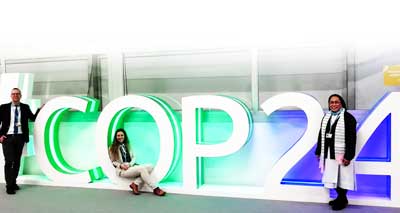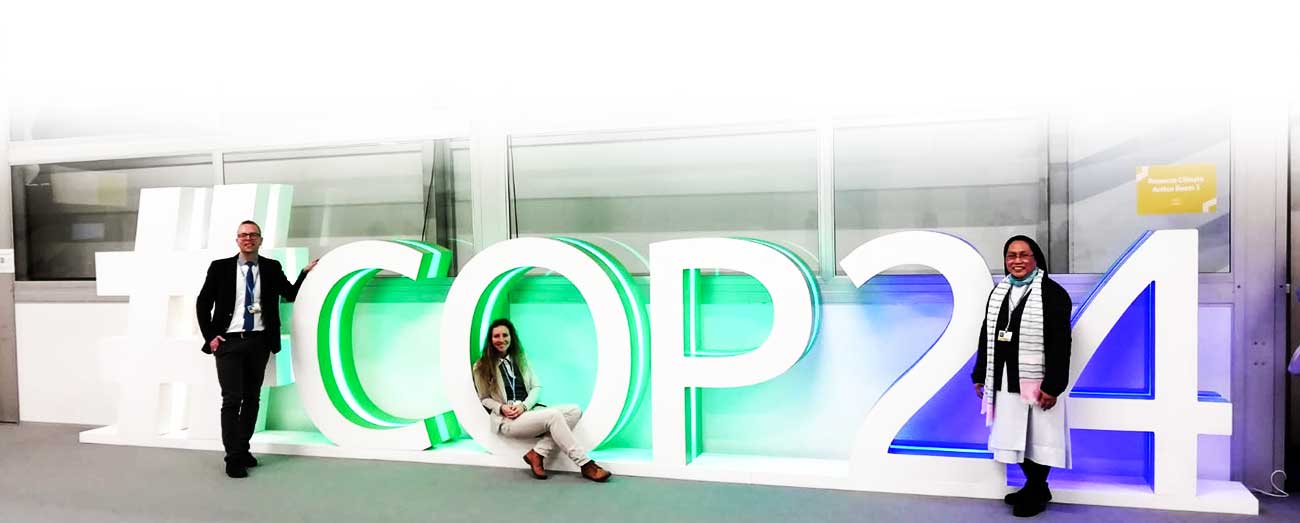United Nations Framework Convention on Climate Change
The UNFCCC entered into force on 21 March 1994. Today, it has near-universal membership. The 197 countries that have ratified the Convention are called Parties to the Convention. Preventing “dangerous” human interference with the climate system is the ultimate aim of the UNFCCC.
The ultimate objective of the Convention is to stabilize greenhouse gas concentrations “at a level that would prevent dangerous anthropogenic (human induced) interference with the climate system.” It states that “such a level should be achieved within a time-frame sufficient to allow ecosystems to adapt naturally to climate change, to ensure that food production is not threatened and to enable economic development to proceed in a sustainable manner.”
Since 2017, Dominicans for Justice and Peace follows the yearly Conference of Parties (COP) of the UNFCCC. The main objectives of the presence of the Delegation at the COP are:
• to address with faith-based organizations the enormous challenges posed by climate change through advocacy, mobilization and capacity building;
• to rally governments to include the highest consideration of human rights at all levels whenever they update or design their climate policies and;
• to encourage the engagement of the Dominican networks on climate change issues.



